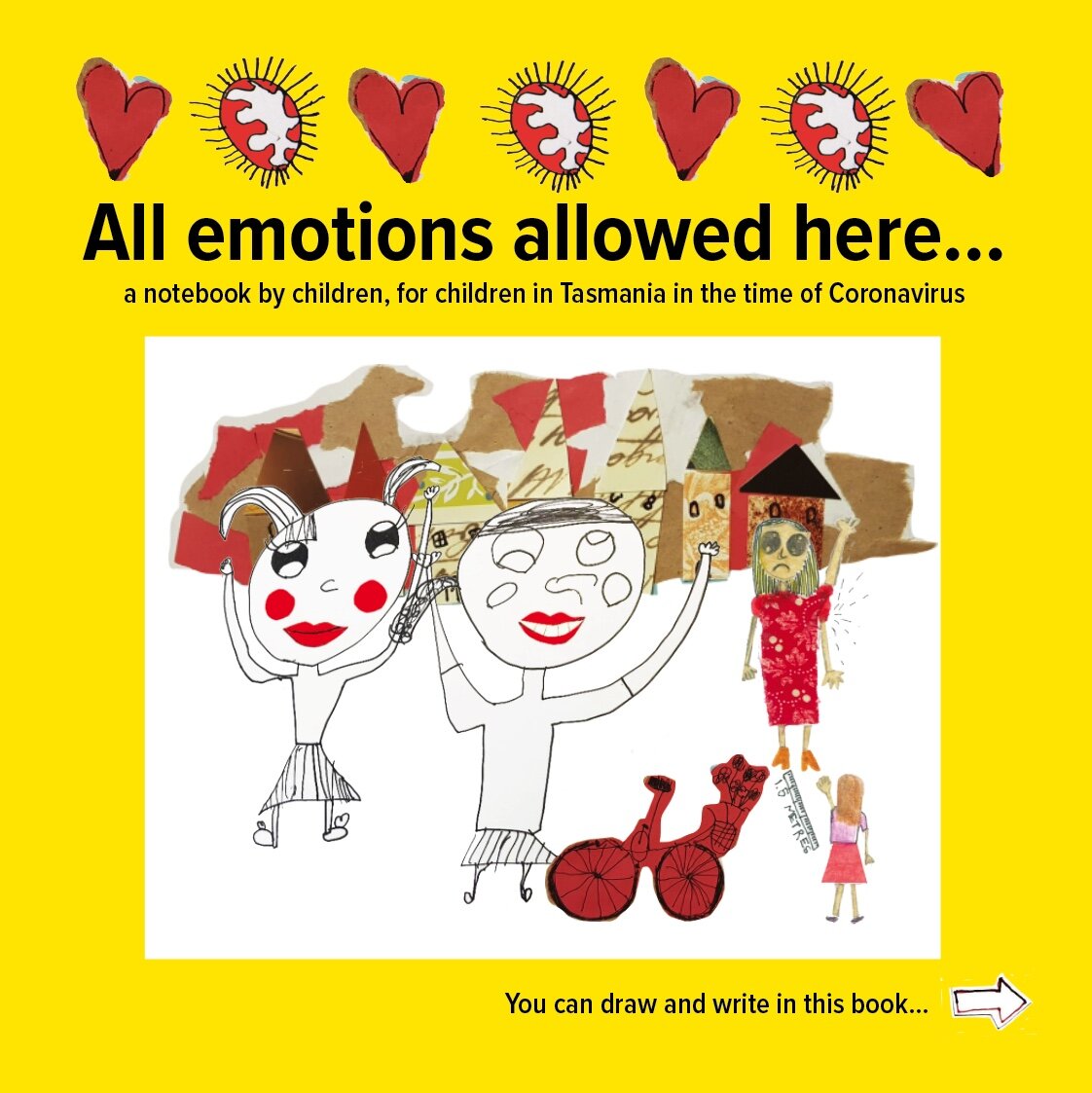All emotions…
All emotions allowed here: Pedagogies for publishing with children in the time of Coronavirus
Cover of book published as part of ArTELIER
As a PhD candidate, I understand it is normal to reflect on and question many aspects of the research process – especially in this “valley of deep (Covid) shit” https://thesiswhisperer.com/2020/04/22/the-valley-of-covid-shit/, the anxiety of uncertain times ahead, and being caught up in the drama of the ‘story’ as it unfolds globally. I have found it hard to concentrate on writing in this time, with thoughts scattering like beans from a coffee jar. I have questioned the relevance of my research, wondering if I should be pursuing more pressing topics in these times.
In the early phase, April and May, diverted by upended daily routines I slowed down, and accepted a degree of privilege that affords me space to reflect, think and make. I was struck by my urge to make in various forms – sourdough, croissants, curtains – not to mention reconnecting with a quilt project begun many moons ago made from Scarlet’s clothes*.
Fortunately, I also found a productive outlet for some of this restless thinking related to my research. In this time of Covid-19, the book as a tangible object is an important counterweight to screen time when so much of our lives are conducted online. With this in mind, a group of artists as part of ArTELIER, a professional learning program for artists in Tasmania (https://arteliertasmania.org/), discussed the idea of publishing a book that made space for children and young people’s authentic voices. (I acknowledge that the debate around authenticity in children’s literature is one I will grapple with elsewhere {Loza, 2018 #548})
The first, by younger children, All emotions allowed here is a snapshot of one group of children aged 5 to 12 in an extraordinary time. The book encourages families to talk about what matters at a time of change and uncertainty and builds resilience. It also provides blank space for other children to add their own thoughts and feelings. You can hear the Children’s Commissioner for Tasmania, Leanne McLean read part of the book, find out more and where to buy it at https://arteliertasmania.org/projects/allemotionshere.
The second, in a zine format, offered a group of young people aged 14-24 a paid opportunity to attend a series of three professional development workshops with writer, Danielle Wood http://www.daniellewood.com.au/, graphic novelist Josh Santospirito, https://joshuasantospiritoart.com/, and illustrator Liz Braid, https://www.elizabeth-braid.com/. The resulting publication All emotions allowed here: How can I find normal when I’m living in a social tragedy? is a mix of artworks and writings offering a direct glimpse into young peoples’ lives as changed by this pandemic.
Forced into the online space by the Covid 19 lockdown, has offered a fortuitous opportunity to think about new models of reaching children. I see the strength of the ArTELIER model reflected in the dispersal of voices that talk to this publishing project. The collective responsibility, shared sense of ownership spills over quite naturally into the publicity around this book:
One might be great at promotion, another can share the perspective of a parent and child working together on it.
A child selling the book to her school – walking up to the office for the first time on her own and asking “will you buy my book?”
A young man with autism, taking on responsibility for selling the book around cafés, bookshops and cultural institutions of Launceston.
These are hard to quantify in a pedagogy of publishing with children focussed on either the writing process, or the art making alone.
* My daughter Scarlet died in 2012, an important part of my personal story that intersects with my research in ways elusive for the present.
-
June 2022
- Jun 27, 2022 Micropublishing using KidsPublish app Jun 27, 2022
-
October 2020
- Oct 12, 2020 A Tasmanian Book Cubby Oct 12, 2020
-
September 2020
- Sep 1, 2020 BLM & books by children Sep 1, 2020
-
June 2020
- Jun 17, 2020 All emotions… Jun 17, 2020
-
May 2020
- May 27, 2020 Ripples May 27, 2020
